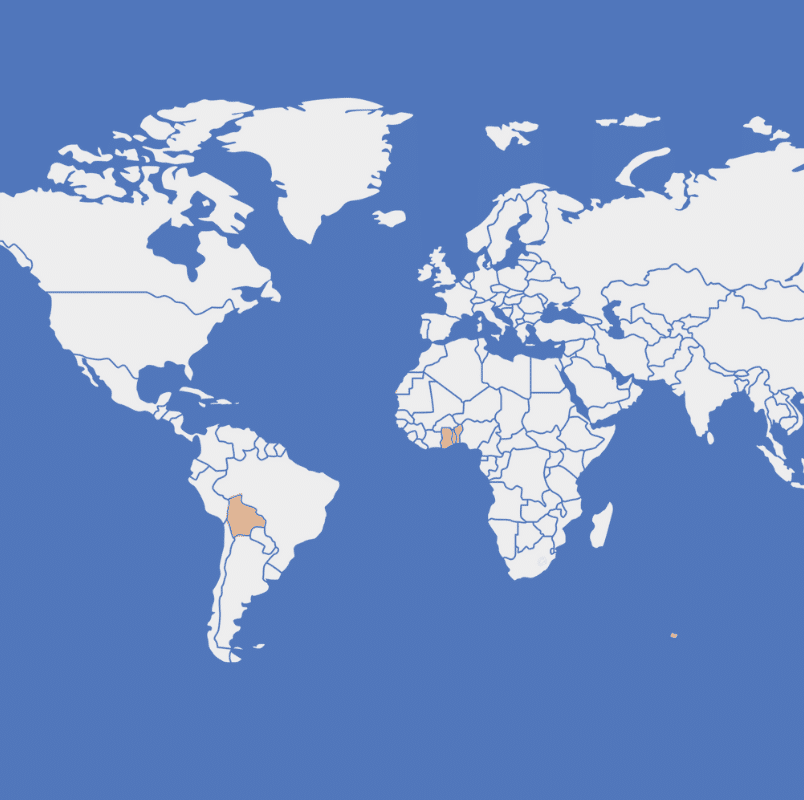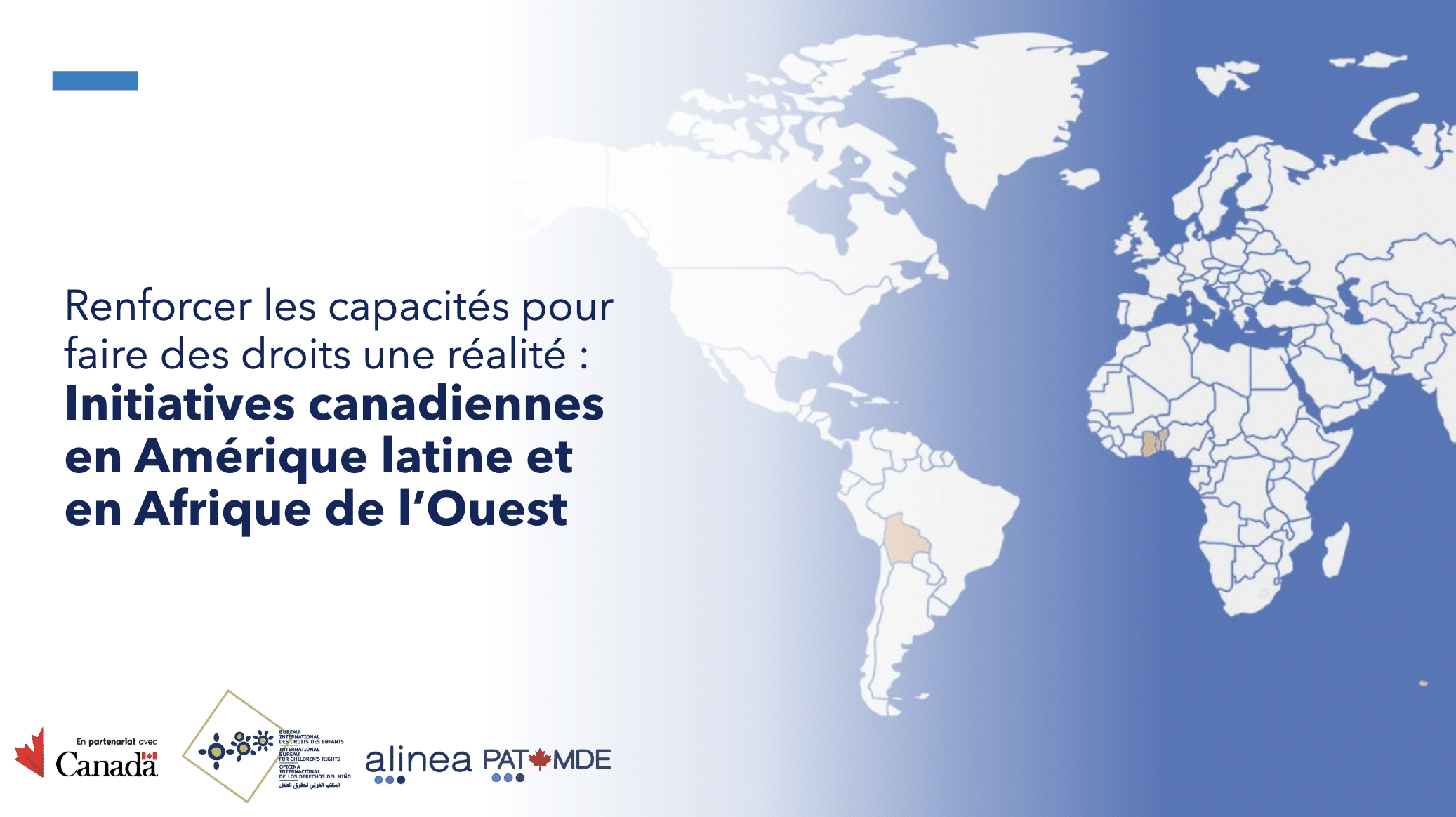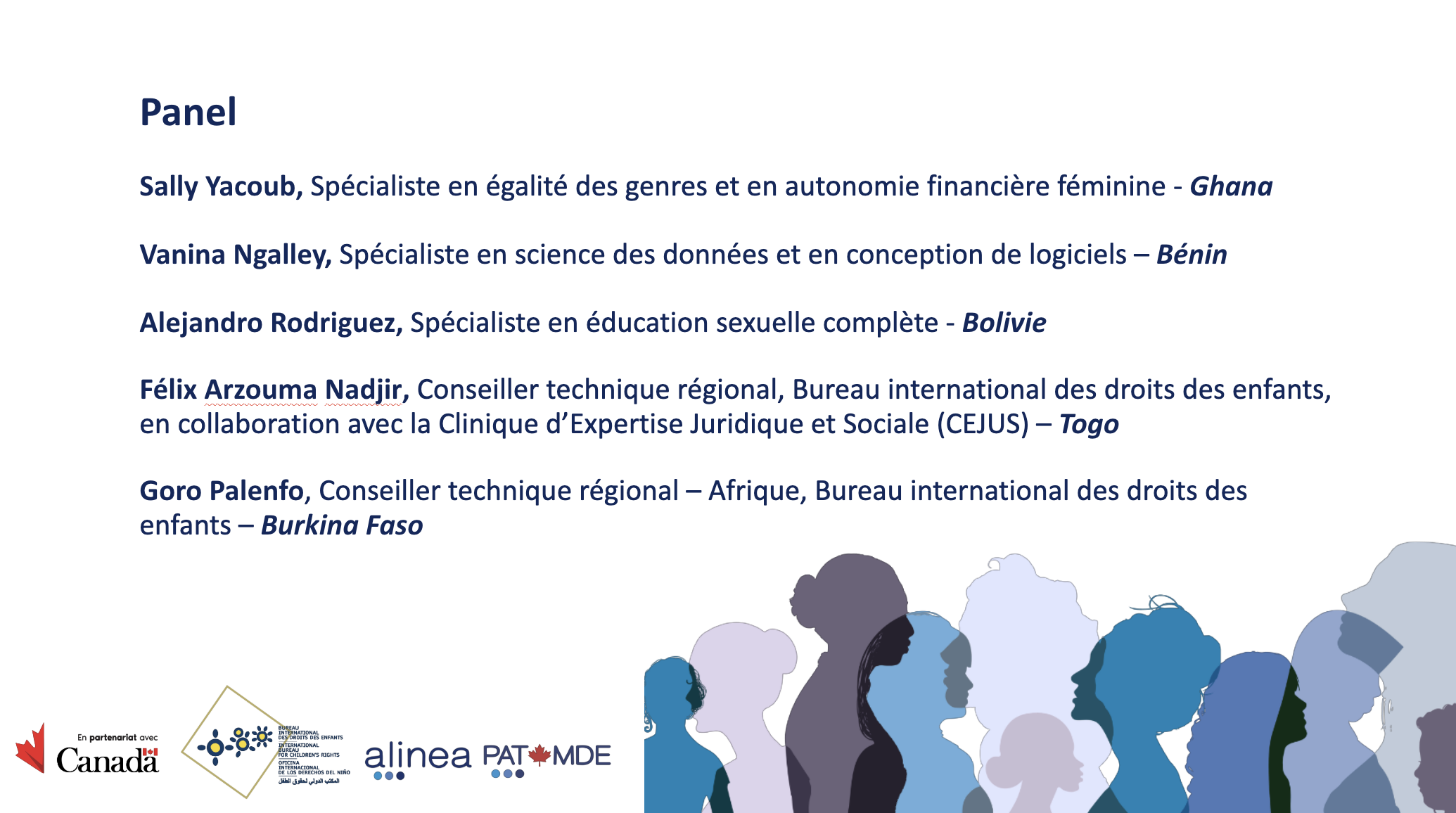
On July 16, the webinar “Building Capacity to Make Rights a Reality” brought together around forty participants for an inspiring discussion on children’s rights, gender equality, and the protection of vulnerable populations. Organized through the Technical Assistance Partnership – Expert Deployment Mechanism (TAP-EDM) in collaboration with the International Bureau for Children’s Rights (IBCR), and supported by Global Affairs Canada, this virtual event showcased concrete collaborations between Canada, Latin America, and West Africa.
A Conversation on Canadian Initiatives in Latin America and West Africa
Moderated by Christopher Yeomans, Project Director at Alinea International, the webinar aimed to raise awareness among Canadians about the importance of international cooperation and the impact of Canadian-funded initiatives. In collaboration with the International Bureau for Children’s Rights (IBCR), the event highlighted four projects implemented in Bolivia, Ghana, and Benin, as well as a regional initiative in Burkina Faso and a partnership in Togo. All these efforts share a common goal: to strengthen the capacities of local partners to promote human rights and build more equitable societies.
Watch the recording here.
Committed Panelists for Lasting Change
Five panelists from diverse professional and geographic backgrounds shared their experiences, reflecting the richness and variety of the approaches implemented.
Alejandro Rodriguez Aguirre, TAP-EDM expert in comprehensive sexuality education, shared the powerful story of a Bolivian educator whose perspectives and practices were transformed after participating in training on comprehensive sexuality education. This initiative, developed in collaboration with the Plurinational Observatory for the Quality of Education in Bolivia, aims to strengthen public policies and national curriculum frameworks to better meet the sexual and reproductive health needs of young people.
Learn more about the Bolivia initiative
Sally Yacoub, gender equality and women’s economic empowerment advisor and TAP-EDM specialist, spoke about the challenges of collecting sex-disaggregated data during a mandate with Ghana’s Ministry of Gender, Children and Social Protection. Her intervention emphasized the importance of reliable data to inform affirmative action policies and enhance institutional accountability.
Learn more about the Ghana initiative
Vanina Ngalley, TAP-EDM expert in data science and software design, shared her work in Benin, where she supported the Observatory for the Family, Women and Children in improving the availability and use of data on social protection and gender equality. She highlighted how digital tools can contribute to a better understanding of local needs and more effective responses.
Learn more about the Benin initiative
From West Africa, Goro Palenfo, Regional Technical Advisor for the IBCR in Burkina Faso, presented a capacity-building initiative based on training programs tailored to the needs of local stakeholders. He stressed the importance of drawing on regional expertise—particularly by working with trainers from Francophone Africa—to support ownership and sustainability of learning.
Finally, Félix Arzouma Nadjir, legal advisor at the Legal and Social Expertise Clinic (CEJUS) in Togo, spoke about a legal experimentation process conducted in collaboration with the IBCR. This integrated, co-constructed approach enabled children to actively participate in defining their rights and shaping institutional responses—an inspiring example of civic engagement from an early age.
Capacity Building as a Driver of Transformation
Throughout the webinar, the panelists emphasized the transformative impact of capacity building, not only for the individuals directly involved, but also for institutional partners. Innovation in approaches whether through co-construction, cultural adaptation, or technological integration was at the heart of the discussions. The challenges are many: limited resources, restricted access to data, resistance to change… But the tools identified by the speakers are just as powerful: intercultural dialogue, community engagement, lasting partnerships, and above all, a shared commitment to advancing human rights.
A Canadian Commitment Rooted in Solidarity
The webinar also provided an opportunity to highlight a key dimension of TAP-EDM: engaging the Canadian public. Through this mechanism, Canadian experts from a range of fields share their knowledge and collaborate with partners in the Global South in a spirit of reciprocity and mutual learning. As global citizens, Canadians are called to play an active role in international solidarity. Events like this help strengthen the vital connection between local engagement and global issues.
Conclusion
The “Building Capacity to Make Rights a Reality” webinar brought to light concrete experiences, committed voices, and innovative approaches that are transforming systems of social protection, education, and justice around the world. It demonstrates that Canadian cooperation, when grounded in listening, mutual respect, and local capacity strengthening, can play a key role in advancing human rights and contributing to a more just and equitable world.
Sincere thanks to the International Bureau for Children’s Rights and all the panelists for their valuable contributions to this meaningful collaboration.


